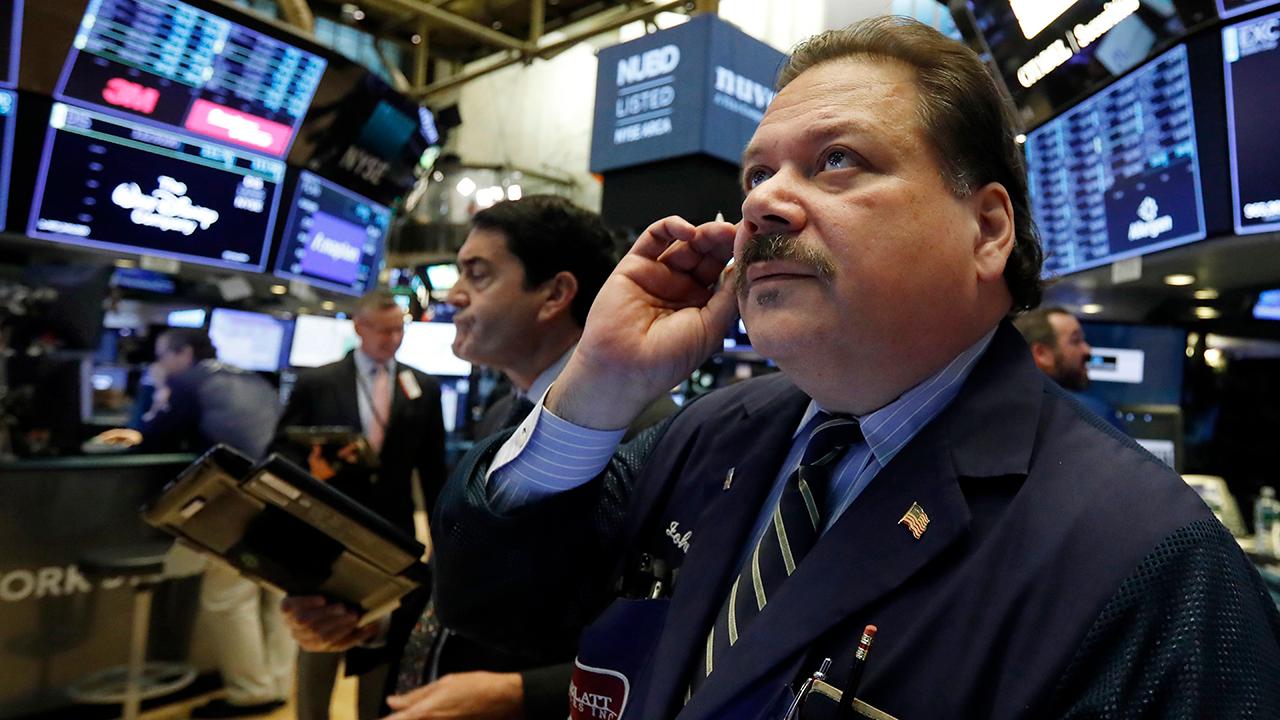Dow plunges 650 points in worst Christmas Eve trading session ever
U.S. stocks on Monday posted their worst Christmas Eve session ever, as a perfect storm of concerns drove investors to bail out of a market that was already badly bruised.
The blue-chip Dow Jones Industrial Average had its steepest drop on Christmas Eve in its 122-year history. It also was the worst Christmas Eve for the tech-heavy Nasdaq Composite and the first time the broader S&P 500 ever had more than a 1 percent drop on Dec. 24. The loss for the S&P 500 put the index into bear market, where it joined the Nasdaq.
If the markets had not closed at 1 p.m. ET for the holiday, the damage might have been worse.
A trifecta of concerns drove investors to sell: The prospect of rising interest rates; global economic weakness; and the likelihood that the partial government shutdown will extend into next year.
Congress missed a midnight Friday deadline for getting a spending bill passed, resulting in a partial government shutdown. No votes are scheduled to end the stalemate until after Christmas.
Monday's hammering followed a stomach-churning week, when the Dow lost 6.9 percent and the S&P 500 tumbled 7.1 percent. The Nasdaq gave up 8.4 percent, making it the first of the three major averages to fall into bear market territory.
Concerns about the ability of the markets to handle the sell-off promoted Treasury Secretary Steven Mnuchin late Sunday to contact the CEOs of the nation’s six largest banks and convene a meeting of the President’s Working Group on Financial Markets. That group, which includes officials in the Federal Reserve, the Securities and Exchange Commission and the Commodity Futures Trading Commission, met to ensure the financial system had adequate liquidity to handle all the selling.
Mnuchin "confirmed that they have not experienced any clearance or margin issues and that the markets continue to function properly," the Treasury Department said in a statement.
| Ticker | Security | Last | Change | Change % |
|---|---|---|---|---|
| I:DJI | DOW JONES AVERAGES | 50166.52 | +50.85 | +0.10% |
| SP500 | S&P 500 | 6978.29 | +45.99 | +0.66% |
| I:COMP | NASDAQ COMPOSITE INDEX | 23290.589619 | +259.38 | +1.13% |
The day's downdraft hammered crude oil prices: West Texas Intermediate, the benchmark U.S. crude oil, tumbled 6.7 percent to $42.53 per barrel.
The only shred of good news Monday came when China said it plans to remove import and export tariffs in 2019 on a range of goods, including import taxes on alternative meals used in animal feed, to secure supplies of raw materials amid trade tensions with the United States and boosting outbound cargoes.
In Monday’s Asian trading, China’s Shanghai Composite ended the day up 0.4 percent.
Hong Kong’s Hang Seng index dropped 0.4 percent.
And Japan's markets were closed.
In Europe trading, London’s FTSE was down 0.5 percent, France’s CAC traded down 1.5 percent. Germany’s markets were closed for Christmas Eve.
On Friday, stocks ended a choppy session sharply lower with the Nasdaq Composite in bear market territory.
The tech-heavy index lost 3 percent, or more than 195 points, the Dow Jones Industrials fell over 414 points, or nearly 2 percent, while the S&P shed 2 percent plus, ending the week with a third down session.
Amid the selling, investors did get decent economic data on Friday. Third-quarter gross domestic product came in at 3.4 percent in a third update released on Friday, in line with analyst expectations and slightly lower than the first reading of 3.5 percent, according to the Commerce Department.
FOX Business' Ken Martin contributed to this story.




















